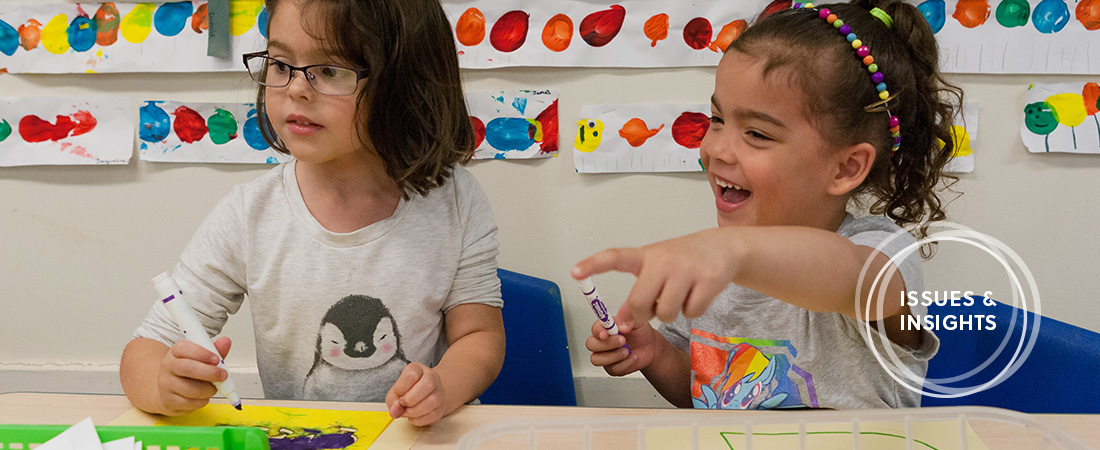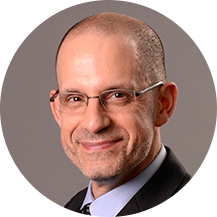Early Education: A Bipartisan Issue

It seems that Republicans and Democrats have had a hard time agreeing on much over the past few years. But there is an emerging bipartisan consensus around the importance of early education—as evidenced by innovative early education programs currently underway in both red and blue states.
EDC’s David Jacobson recently detailed some parts of this consensus in “Four Education Priorities Democrats and Republicans Can Agree On,” a commentary that appears in Education Week. He also comments on early education trends and research at the P–3 Learning Hub blog. Here, Jacobson examines the nature of that agreement and what it might mean for the future of early childhood services.
Q: What are some aspects of early education we can all agree on?
Jacobson: Improving early childhood education requires a comprehensive approach, especially for low-income children. There is much agreement that in addition to improving teaching and learning of cognitive skills, we need to support physical and mental health and social-emotional learning in the early years. This is known as “whole child” development, and it appeals to many conservatives and liberals. Conservatives like that it recognizes the importance of character strengths, and liberals like that it comprehensively addresses the adverse impacts of poverty.
Q: Why are conversations about early childhood services somewhat less divisive than conversations about other issues?
Jacobson: Economic, education, and health research all show that early investments pay dividends later in life. This research has helped inform ideas on both sides of the aisle about what types of environments are best for children. Also, there’s more bipartisan agreement now that family stability—however those families are constructed—is important.
And there’s a greater awareness that access to affordable, high-quality preschool is important for low-income families. In addition to benefiting children, it allows parents to work. This creates an opportunity for compromise. Many politicians across the political spectrum, especially at the state and local levels, see that investing in early education creates better outcomes for children, promotes work, and helps the economy.
Q: How can we use this bipartisan momentum to improve early childhood services?
Jacobson: We can use it to push for quality care that begins with prenatal care and extends through third grade. This means thinking about the needs of children when they are infants and toddlers, when they enter preschool, and when they embark on the early years of elementary school.
For example, in Omaha, Nebraska, the Superintendents’ Early Childhood Plan is a groundbreaking effort to improve quality and coordination across home visiting programs, community-based preschools, and elementary schools. The overall idea is that you can reduce achievement gaps in education if you improve services across the first eight years of life.
Q: How can we improve early education services at the local level?
Jacobson: It’s paramount that we keep pushing for improvements in the quality of services across the prenatal through third-grade continuum.
A bold approach for communities with an appetite for ambitious change is to build a new model of school that stretches from age three to eight. Such a comprehensive approach would allow for greater alignment between preschool and early elementary school in a context that emphasizes developmentally appropriate, rich learning. It could prepare children well for all the rigors of upper elementary and middle school and could be powerfully designed for the “whole child.”
Yet all communities can and should create partnerships that bring together preschool and elementary school leaders, Head Start center staff, library staff, and local pediatricians to work together to help children and families access services. Children’s needs are best met when these services are connected. These partnerships need to implement a coherent set of strategies to build capacity, improve quality, and align services throughout the prenatal through third-grade continuum.
Read more about EDC's work in Early Childhood Development and Learning.
